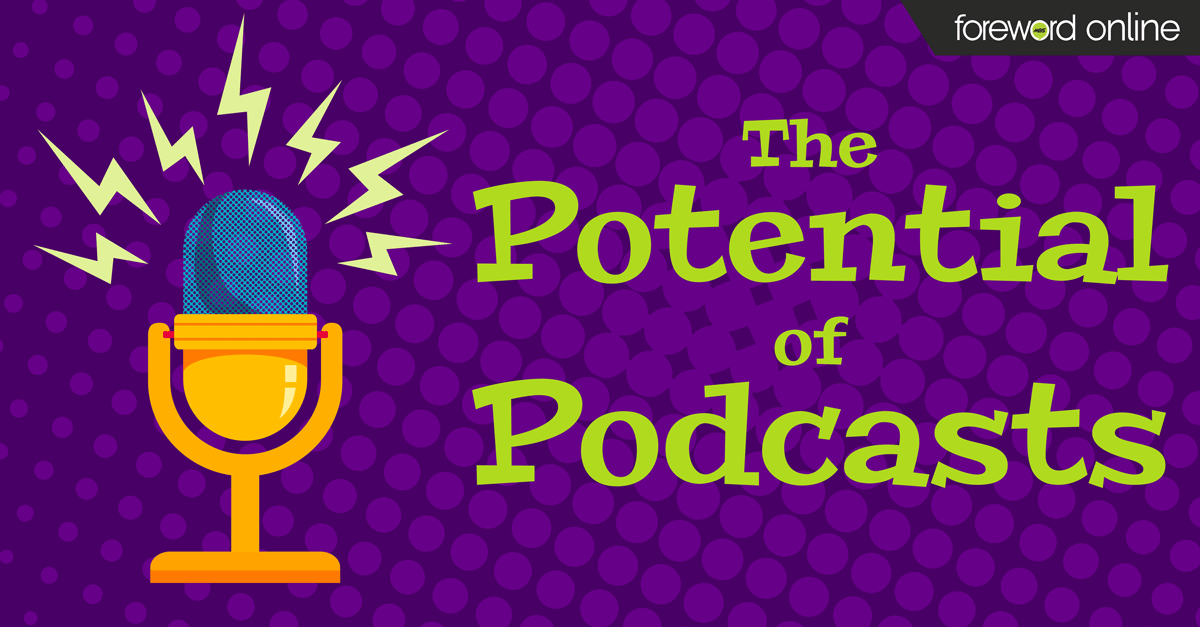What do you think of when you think of podcasts? Coming into this, I wasn’t a fan. Really, that’s probably not a fair statement. I simply never thought about them. I didn’t understand what podcasts provided. In my mind, I equated them with a morning radio show — I’d rather listen to music. Podcasts, however, are so much more.
 There are channels devoted to the stock market, marketing, stories told in a serialized manner, health, science and the list can continue. No matter what you enjoy or want to know more about, there’s probably a podcast for it. And while I am late to the game, others aren’t. Audiences have been steadily growing for a decade. That’s why we are going to look at the marketing potential podcasts have for campus stores.
There are channels devoted to the stock market, marketing, stories told in a serialized manner, health, science and the list can continue. No matter what you enjoy or want to know more about, there’s probably a podcast for it. And while I am late to the game, others aren’t. Audiences have been steadily growing for a decade. That’s why we are going to look at the marketing potential podcasts have for campus stores.
Did you know the audience for podcasts has increased by 75% since 2013? The number of people who listen to podcasts rivals those who are on Twitter. With Twitter, your audience might not see your posts, but when someone subscribes to your podcast channel, they are notified every time you post, which increases your visibility. 27% of people ages 12-24 have listened to a podcast in the last month. Where the social media users are skewed more toward women than men, the podcast audience has more men than women. Podcast listeners take in an average of five episodes per week, and the most used device is the smartphone. Many popular radio and TV personalities have created and run successful podcasts.
In creating a podcast, the first hurdle is determining a subject you are knowledgeable and passionate about that also relates to your store — but it also has to be something your customer cares about enough to listen. A podcast announcing sales or promotions isn’t going to be popular. It would be like signing up to hear to a commercial every week. So where can a college store fit into this platform if it can’t be used for direct sales?
Brick-and-mortar stores are changing in no small part due to the fierce competition eCommerce provides. Customers have more options on where to buy merchandise. Ordering online is fast and easy, and there are no waits. Yes, brick-and-mortar still has many benefits, but will consumers value those over ease and convenience? Physical stores for many leading companies, like Apple®, Starbucks®, and Amazon, feel like a destination. For small businesses, it is hard to follow the model of these corporate giants. Adding food and providing students with areas to hang out is a good solution, but this is also where a podcast can fit in. Rather than the store being viewed as somewhere to get shirts or books or even a place to hang out, a podcast can help the store become a campus hub.
Constructing your podcast
Consider conducting interviews with members of the campus community, invite alumni to talk about corporate expectations or the job market, discuss what goes into the cost of course materials and ways students can save money, provide study tips and brainstorm more ideas of topics your listeners will find interesting. Once you develop a platform that provides something of value to the listener, then dropping in a couple of minutes about events or sales happening at the store won’t seem like a commercial as much as you providing listeners with more valuable information.
After a plan has been completed, you have to determine how to produce a show. I am not going to jump into step-by-step instructions. You will need a quality microphone and editing tool to make the podcast professional. Perhaps involve the communications department and students in the production of the show. Not only would you be engaging directly with the campus, but it also provides a beneficial student experience, especially if the college doesn’t run a radio station. Check what podcasts are already available on your campus. Look for a gap you can fill and get advice on how they went through approval and set up.
The final step once the podcast has been planned and produced is to market your efforts. After all, if no one listens, you haven’t gained anything. The usual marketing strategies apply. Share the programs on social media, mention them to customers, link it on your website and use all the traditional channels of promotion. Apart from that, frequent and consistent posting will help gain traction. Be patient and allow time for word-of-mouth to build. If you already have an established podcast, consider recording episodes with a live audience or hosting a listener event.
Does your store need a podcast? No. However, if this sounds like a project you would like to take on, it would provide long-term benefit to the store, campus and the students.





